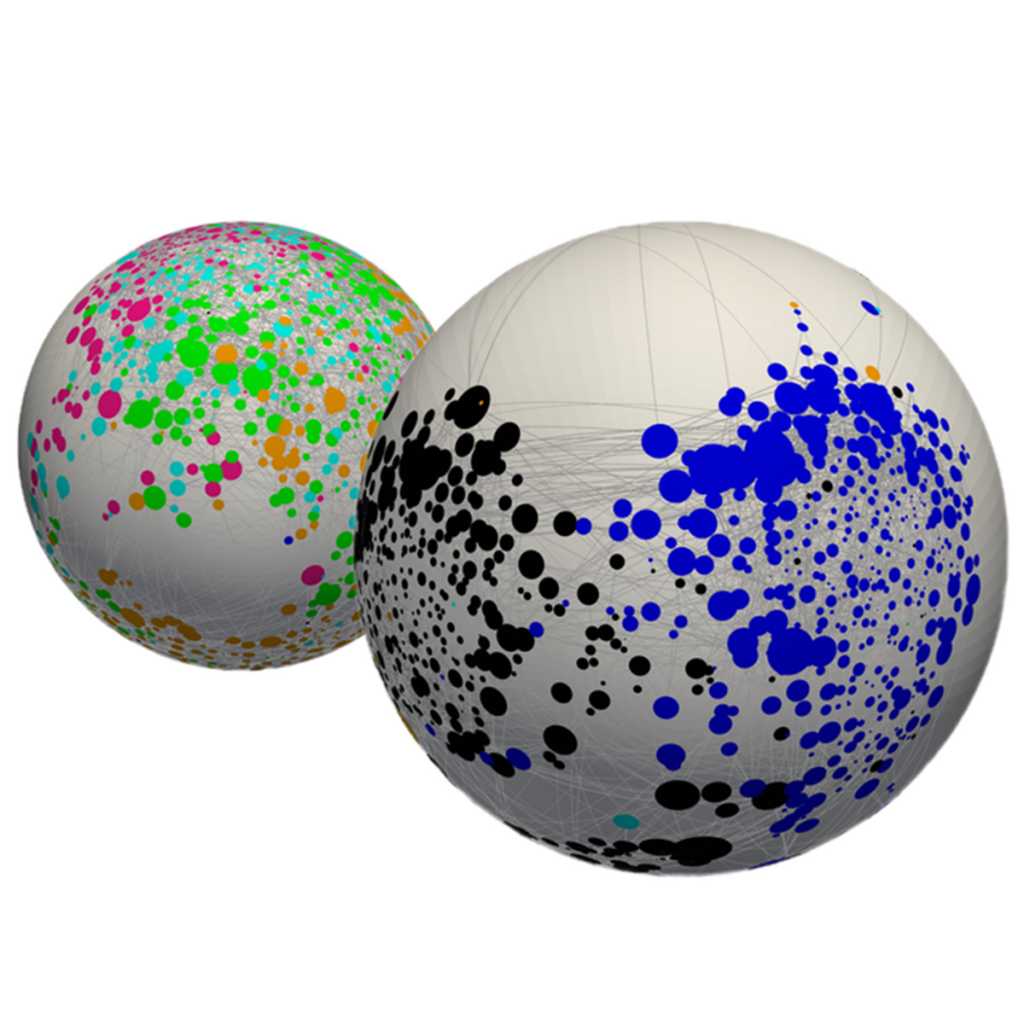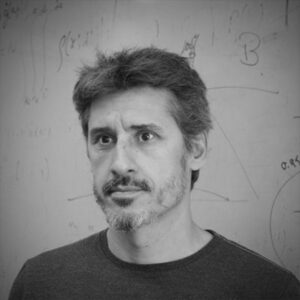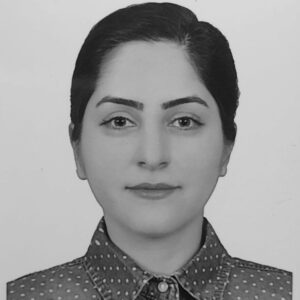Fundamental Science for Society FS2
Mapping Complexity
By M. Ángeles Serrano and Marián Boguñá
Fundamental Science for Society FS2
Complex systems, such as societies, the Internet, the human brain, molecular networks within cells, international trade, and many others, are ubiquitous and around us. We are using networks to uncover the fundamental principles governing their structure, function, evolution, adaptability, and for modeling and predicting their behavior.
Foundation of Complex Networks
Network Geometry
Real Networks and Complex Data Structures
Understanding Neural Networks
Networks in Cosmology
Ongoing Projects
We develop mathematical models and computational tools to investigate a wide variety of real complex systems, ranging from biological to economic and socio-technological systems. We characterize these systems using massive datasets.
The geometry of complexity
SD/HD+1 models · maps and embedding tools · navigability · multiscale · dimensionality · functional patterns
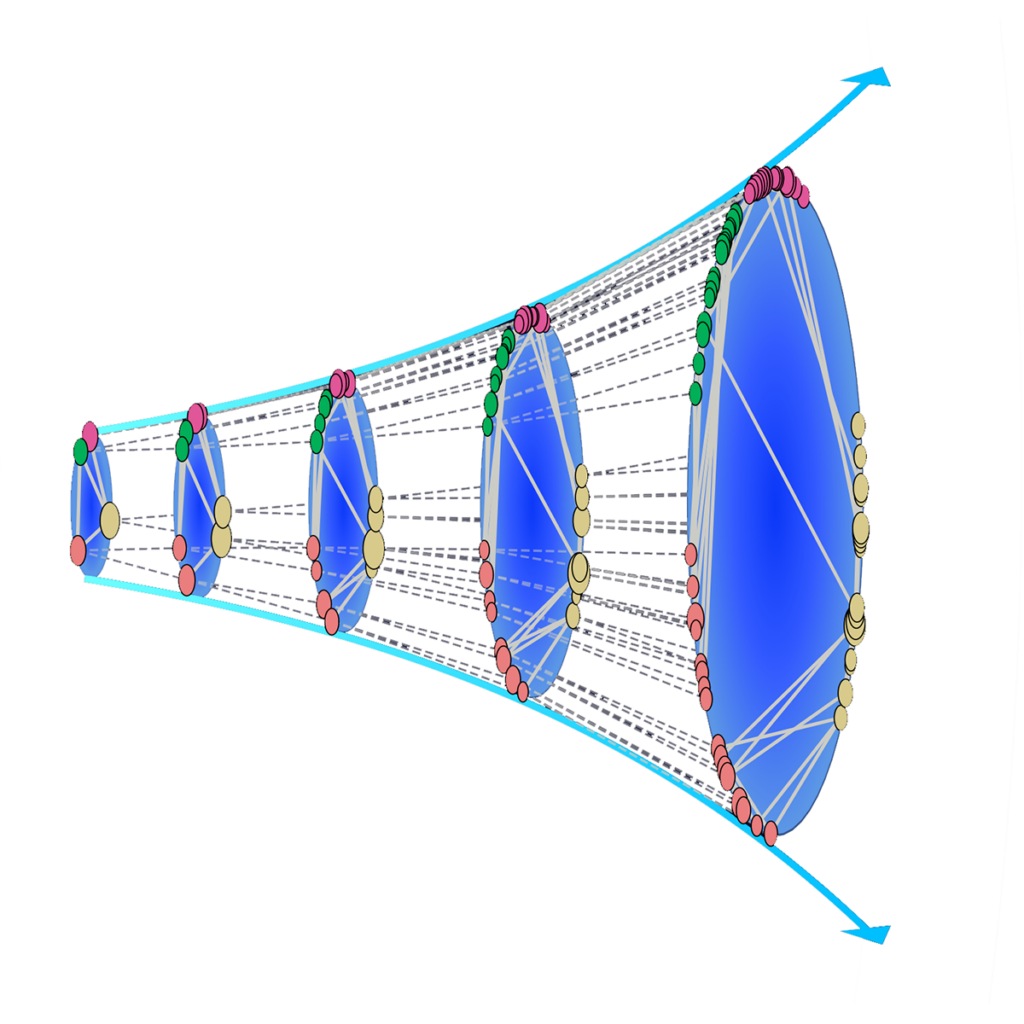
Networks at the Multiscale
Length scales and distances
renormalization · self-similarity · growth and evolution
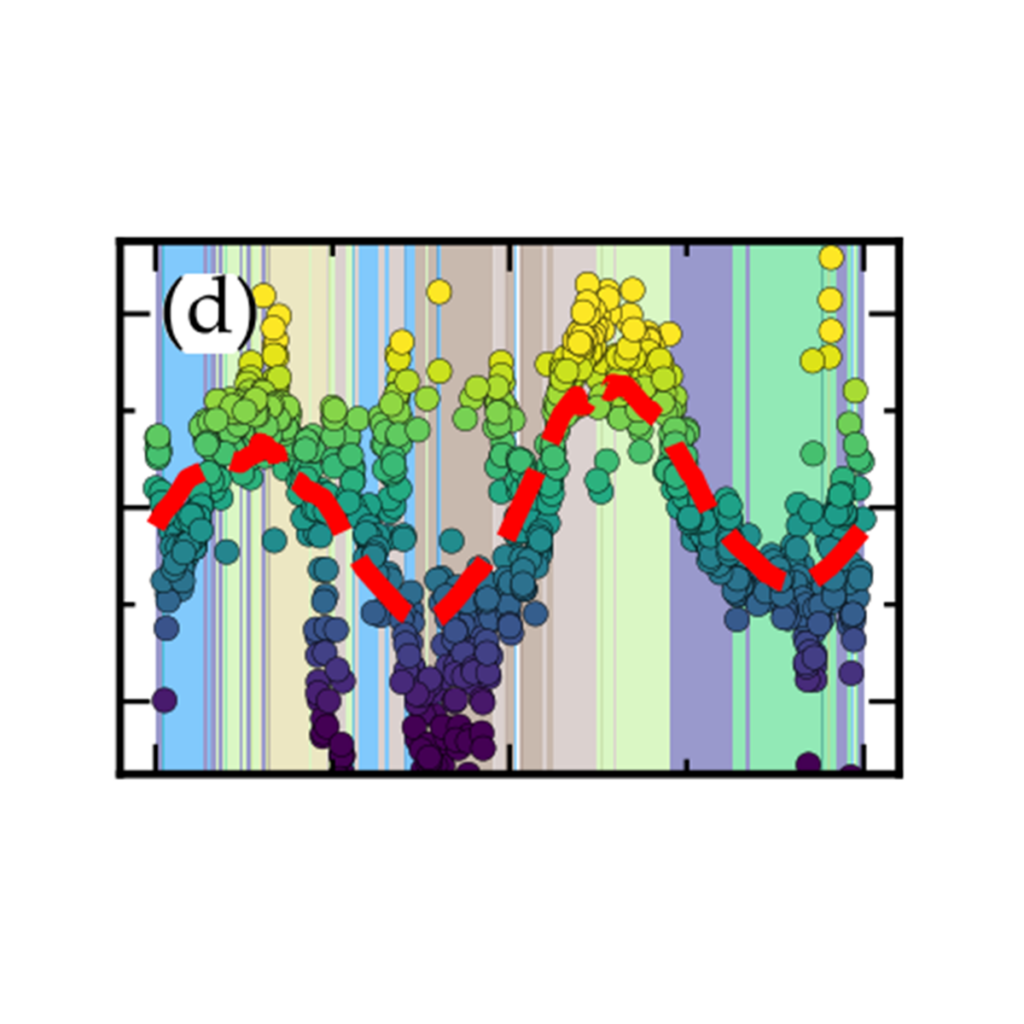
Dynamics on and of Networks
The structure-function interplay
Turing patterns · epidemics · opinion formation · decision making · network evolution
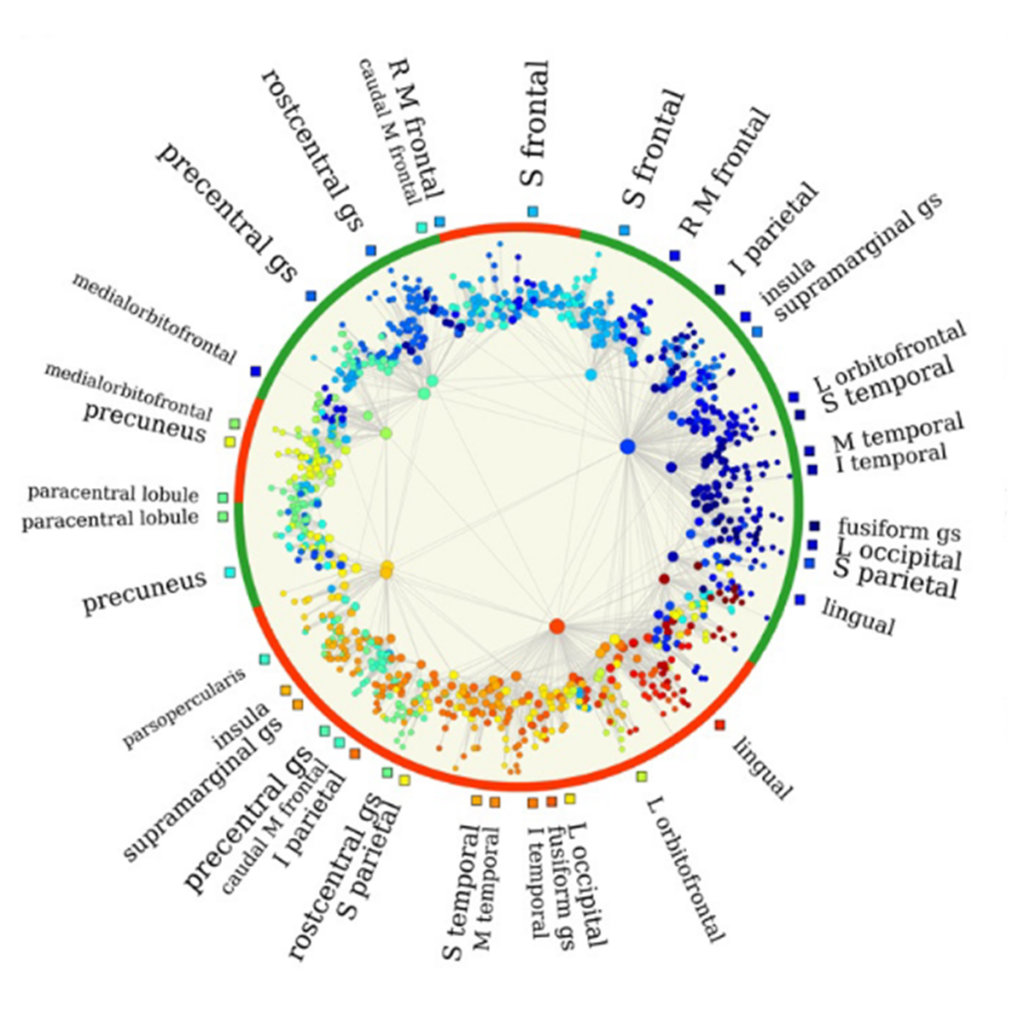
Brain Networks
Multiscale features
connectomes · communication · navigability · multiscale
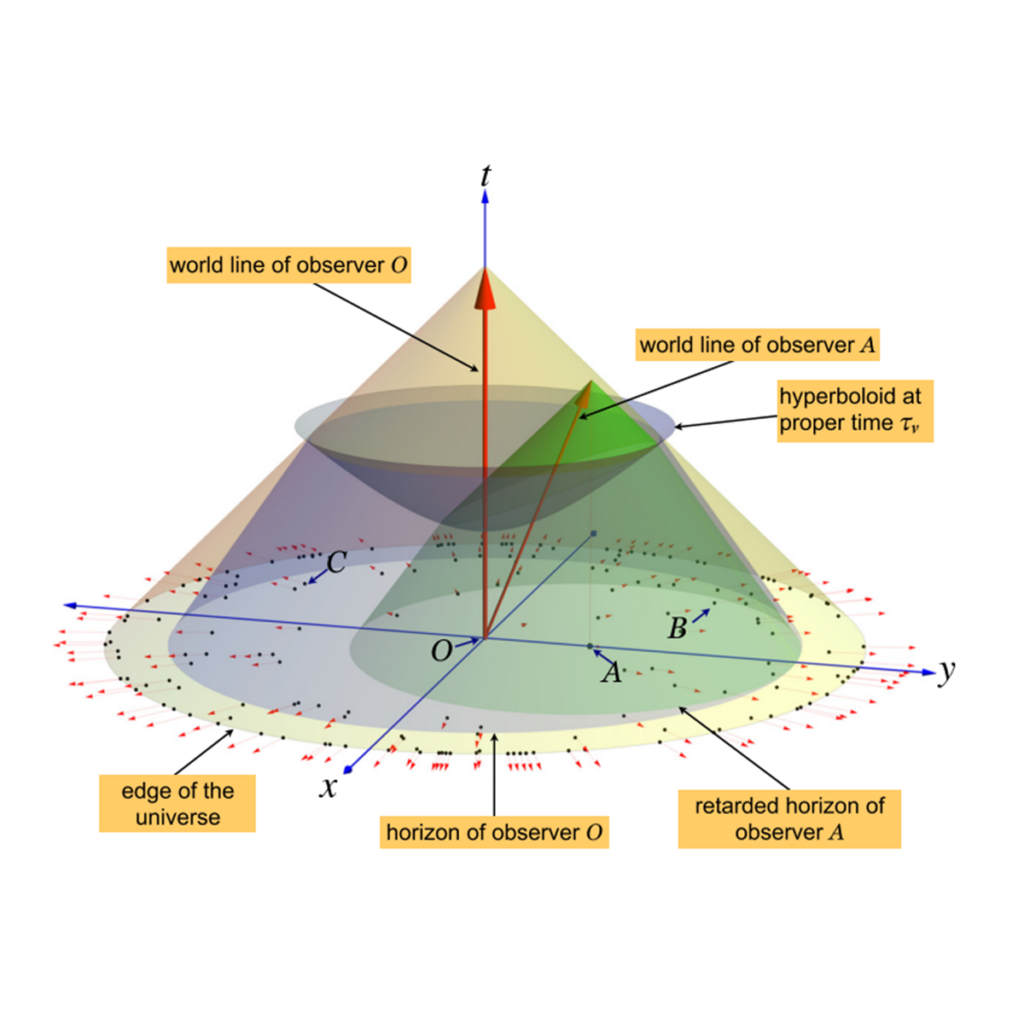
Networks in Cosmology
Discretizing spacetime
directed acyclic graphs · causal sets · Milne cosmology · de Sitter spacetime
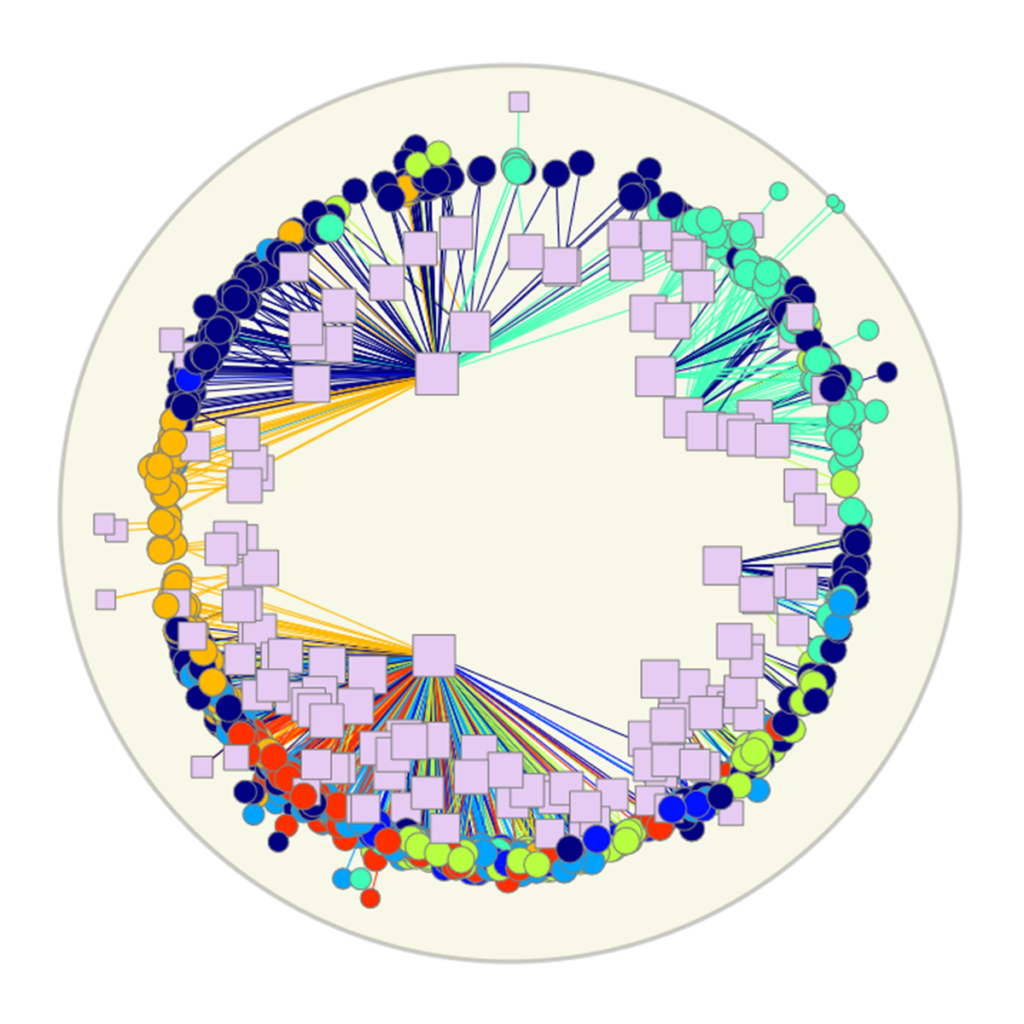
Interpretability of Neural Networks
Opening the black box
graph neural networks · feature-enriched network geometry
People
Group Leaders
Postdoctoral Researchers and PhD Students
Master and Undergraduate Students
Contact
M. Ángeles Serrano
marian.serrano@ub.edu, +34934021153
Office 4.06
Marián Boguñá
marian.boguna@ub.edu, +34934039211
Office 4.16
Department of Condensed Matter Physics
Faculty of Physics, University of Barcelona
Martí i Franquès, 1 – 08028 Barcelona, Spain

